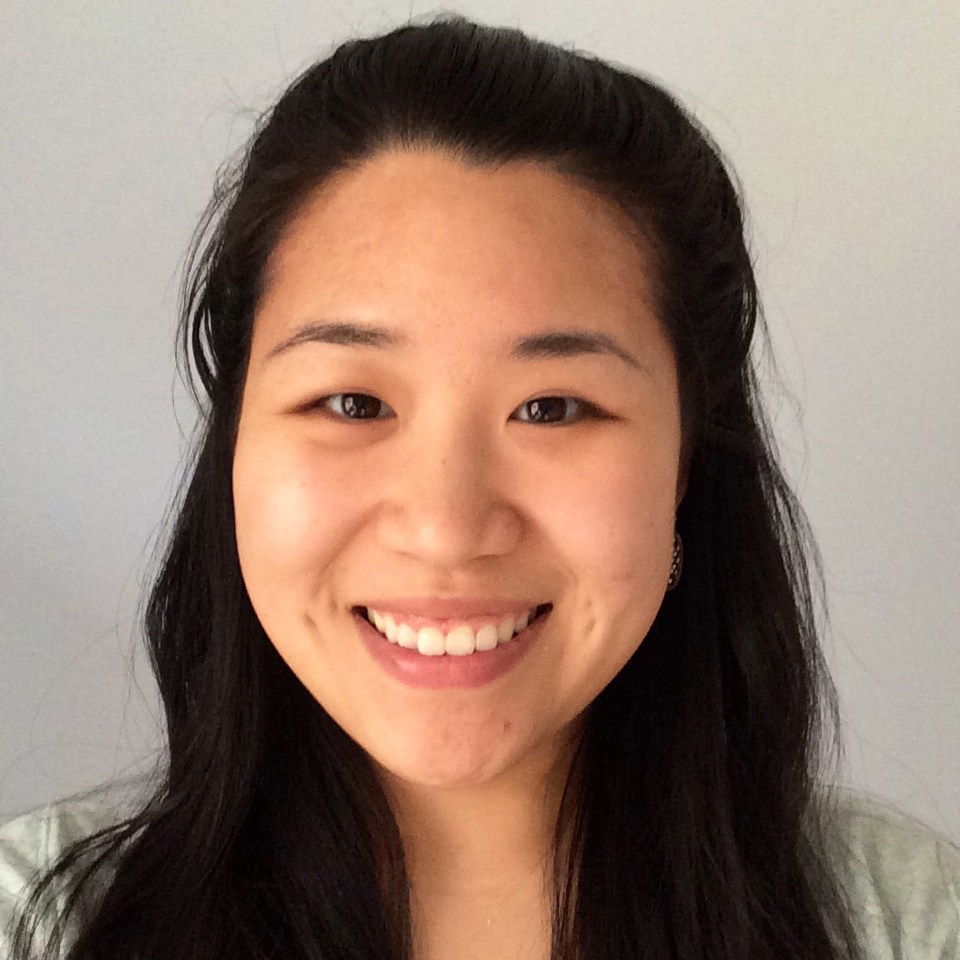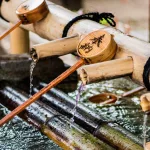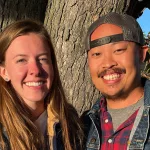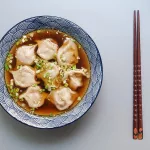Growing up Asian-American, I celebrated both American holidays and traditional Chinese holidays. One of these Chinese holidays was Dragon Boat Festival (Duānwǔjié), which occurs in May or June, depending on the lunar year. This was an interesting holiday to grow up with, as there were no dragon boats around, despite living in the Land of 10,000 Lakes. (Nowadays, you can find dragon boat racing, including at the annual Dragon Boat Festival at Lake Phalen.)
Every year to celebrate, my family would make a dish called zongzi – glutinous rice (the truly sticky kind, not Jasmine rice) surrounding savory fillings of soy sauce braised hard boiled egg, xiang chang sausage (or better known as lap cheong in Cantonese), water chestnuts, peanuts, all wrapped in large dried bamboo leaves into tetrahedral shapes, and then steamed until cooked and fragrant. Each family has their own take on their zongzi recipe, and families often make extra to exchange with their friends.
These were a labor of love. My mom would tediously prepare and cook the fillings, sometimes even making homemade sausages. I can still remember the sausage stuffing funnel that she DIYed from the top of a two-liter bottle, and how the sausage links would hang to dry in the three-season porch of my childhood home. The bamboo leaves were brought over from Taiwan by my grandparents whenever they would come to visit us. One year, we ran out of our bamboo leaves, and my parents bought some from a local Asian grocery store. They complained that these bamboo leaves were not nearly long or wide enough. These zongzi demand perfection!
My family would gather around the table to wrap zongzi together. We all carefully make a pouch with the bamboo leaves, spooning in sticky rice and the fillings, then deftly sealing the wrap and tying it all together with string. Individually, as we finish wrapping each zongzi, we pause to silently admire our own neatly wrapped zongzi. That is, except for my dad. Every year without fail, my dad would loudly brag about how he is the expert at wrapping zongzi.
The origins of Dragon Boat Festival, as told to me when I was a child, was that a very long time ago, there was an adviser to a Chinese king. This adviser was eventually slandered by his enemies and exiled. He became very depressed during his exile and because he no longer felt that he had the trust of his king, he drowned himself in the river. Due to this extreme act, the people recognized his martyrdom and patriotism. The local people who admired the exiled adviser raced across the river to rescue him. Because they could not find his body, they dropped zongzi into the river to keep the fish from desecrating his body. Thus began the tradition of dragon boat racing and eating zongzi.
As a kid, suicide and matrydom were very strange concepts to me. Now as a believer and an adult, I reflect on my heritage (both Chinese and American) with a gospel lens. I can now understand living sacrificially due to Jesus’ ultimate sacrifice of his life on the cross for me. But I also know the hope I have in Jesus in times of despair.
I am proud of my Asian-American identity. Although, growing up, I felt there was more pressure to assimilate than to celebrate my cultural heritage. I grappled with questions – How do I find my way in a culture but not hide myself or my unique perspective? How do I be myself in mainstream American culture, and also be myself in my Chinese culture? And now an additional question – How do I do this in a way that glorifies God? I admit this is still a journey for me. And these days, my husband and I get to encourage our two children to learn and celebrate their multicultural identity…which includes making zongzi.





